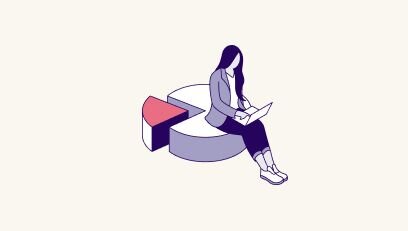If you're planning to buy any home in the UK, it's likely that you'll need to take out a mortgage to finance your purchase. However, before you can do that, you need to know how much you can borrow. Banks and other financial institutions use several criteria to determine how much you can borrow. Here's what you need to know.
Income
One of the most important factors that banks consider when deciding how much you can borrow is your income. They'll want to see proof of your income, usually in the form of payslips or bank statements. They'll also want to know how stable your income is. If you're self-employed or work on a contract basis, they may ask for additional documentation to prove that you have a consistent income.
Expenses
Banks will also look at your expenses when deciding how much you can borrow. They'll want to know how much you're spending each month on things like rent, utilities, and other bills. They'll also look at your credit card and loan repayments. This information will help them determine how much money you have left over each month to put towards your mortgage repayments.
Deposit
The amount of deposit you have can also affect how much you can borrow. Generally, the larger your deposit, the more you can borrow. This is because a larger deposit means you're less of a risk to the bank. It's also worth noting that if you have a small deposit, you may need to pay for mortgage insurance, which can increase your overall costs.
Credit Score
Your credit score is another important factor that banks consider when deciding how much you can borrow. Your credit score is a reflection of your credit history and shows how reliable you are at paying back loans and credit cards. If you have a good credit score, you're more likely to be approved for a larger mortgage.
Affordability
Finally, banks will look at your overall affordability when deciding how much you can borrow. They'll want to know that you can comfortably afford your mortgage repayments each month. To do this, they'll use something called an affordability assessment, which looks at your income, expenses, and other financial commitments. Typically banks will only lend you a maximum of 4.5x your total annual household income. Meaning if you earn £50,000 as a family, you can borrow up to £225,000.
Who assesses you in Shared Ownership?
The same affordability principles apply in Shared Ownership, although both the lender and your Housing Association will have an interest in whether or not you can afford to buy the property, or potentially staircase once you’re in the property. Because Shared Ownership involves paying both a mortgage and rent each month (plus service charge and ground rent) the affordability calculations don’t just take into account whether your salary can cover the mortgage.
Affordability calculations in Shared Ownership
Similarly to when a bank looks at affordability, Housing Associations will look at your fixed costs, meaning those things that you cannot avoid, such as rent, service charge, ground rent, mortgage costs, loans and repayments. Then they will look at your monthly take home pay, plus potentially any commission, bonuses or other sources of income. Once they have both numbers they will divide your total costs each month by the total earnings, which results in a percentage number.
Each Housing Association might look at it slightly differently to others, but in general that number cannot exceed 45% for you to be deemed as someone who can afford the transaction.


